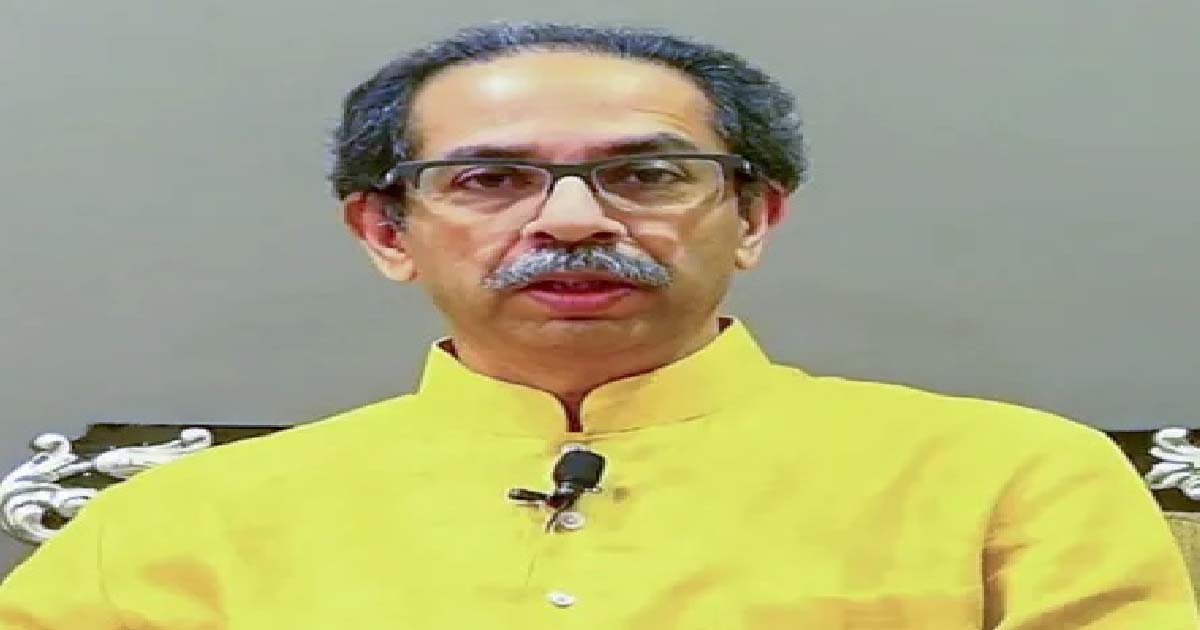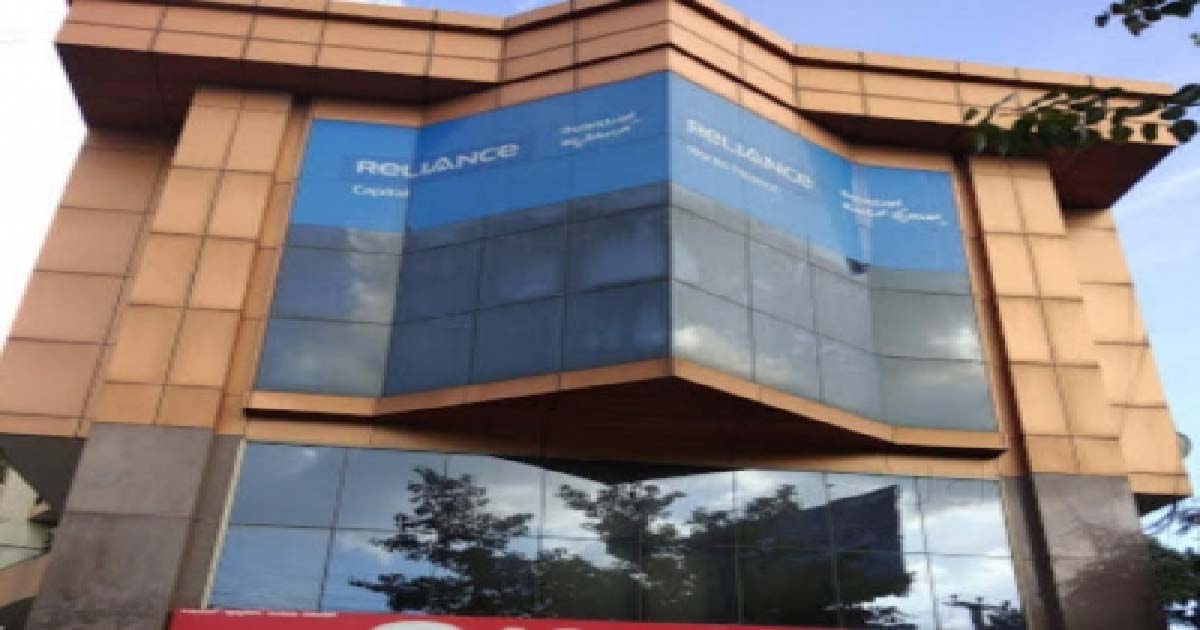National News
Govt should act in national interest, not engage in campaign: Shiv Sena(UBT) in Saamana

Mumbai, April 25: Shiv Sena(UBT) in its mouthpiece Saamana on Friday said that the government should take quick action in the national interest in the wake of the Pahalgam terror attack, and not engage in a campaign, indirectly mentioning Prime Minister Narendra Modi’s rally in Bihar.
The editorial read: “The Pahalgam attack is inhumane, but blaming this case on Hindu-Muslim conflict is even more inhumane. Our fight is with Pakistan and terrorist groups. If anyone wants to defame Indian Muslims and Kashmiri people, then it indicates that they do not want to solve the country’s problems and want to politicise Pahalgam like Pulwama.”
It slammed the BJP’s IT cell, saying that “While all the tourists are saying that locals helped the tourists stranded in and around Pahalgam, it is shocking that the BJP’s ‘IT’ cell is trying to divide Hindus and Muslims in this incident as well. The attack in Pahalgam was not only on tourists, it was on us. The Kashmiri people have expressed their human feelings that we were hurt in it, which should be taken into account. Our fight is with Pakistan and terrorist groups.”
“The country has not yet recovered from the shock of the Pahalgam terror attack. Twenty-five lakh tourists from all over the country reached Kashmir due to the propaganda that we have ended terrorism in Kashmir, and this happened without incident. There is a public outcry that every drop of blood and tears shed in Kashmir should be avenged, that justice should be done to Pakistan. Prime Minister Modi and Home Minister Amit Shah are giving the impression that the Pahalgam incident should not be politicised. Since the Pahalgam attack took place, they have started saying that the issue should not be politicised. If these groups had followed the path of not politicising a tragic incident in the last ten years, there would not have been time to make such pleas today. The Pahalgam attack is inhumane, brutal and it must be avenged, but what does it mean to avenge? asked the Shiv Sena(UBT).
“The country is facing a real threat from those who think that by voting for the BJP in the elections, making Modi the Prime Minister, and only by doing so, ‘revenge’ will be completed, and that the Pakistanis will hide in the pit. Revenge is to be taken from Pakistan and the terrorists. Will the revenge of Pahalgam be completed by challenging the Muslims of the country and attacking their mosques and madrasas? Some people are tempted to do so. The fight is against Pakistan, not against the patriotic Muslims who are Indian citizens,” said the editorial.
“After the Uri and Pulwama terror attacks, there were speeches, ‘we will take revenge, we will make amends’. There were knee-jerk reactions in Parliament and public meetings. As revenge for Uri, a ‘surgical strike’ was carried out on Pakistan-occupied Kashmir. At that time, it was said that the backs of Pakistan and terrorists had been broken and the Pakistanis made amends, but that did not happen,” claimed the editorial.
The Shiv Sena(UBT) in the editorial recalled that Indira Gandhi in 1971 defeated Pakistan and divided it into two parts. Still, the tail of the Pakistanis remained crooked. What exactly is the PM Modi government going to do now? The government should take action, not merely do a campaign,” said the editorial targeting the BJP-led government at the Centre.
“PM Modi is shaken by the Pahalgam attack and returned after cutting short his visit to Saudi Arabia. Rahul Gandhi is returning after cancelling his US visit. It is usual for the government to call an all-party meeting after the ‘Pahalgam’ attack. What will a government that always suppresses the voice of the opposition and is not ready to discuss any issue in Parliament, from Kashmir to Manipur, do by calling an all-party meeting? The country’s Home Minister is not serious about national security, as he has failed to protect the lives of the people. Home Minister’s removal is an all-party demand. If the government is not going to consider that demand, then why is there any need for meetings? ” asked the Shiv Sena(UBT) in the editorial.
Upping the criticism against the BJP-led government at the Centre, the editorial said: “It has been a long time since Article 370 was abrogated, but the government will not answer what it achieved by removing the statehood of Jammu and Kashmir. The government has made huge cuts in the Army and reduced financial provisions for the Defence Department. This game is dangerous. It did not provide aircraft to the army units in Pulwama and left the safety of thousands of tourists in Pahalgam hanging in the wind. Now that the attack happened and the people are angry after innocent people were killed, the government is running around.”
Mumbai Press Exclusive News
When will the dilapidated roads in Bhiwandi city be repaired? Raees Sheikh asked a question in the Maharashtra Assembly, expressing concern over road accidents.

Nagpur: Samajwadi Party MLA from Bhiwandi East Raees Sheikh raised the issue of dilapidated roads, debris lying everywhere and increasing road accidents in Bhiwandi city on the first day of the ongoing winter session of the Maharashtra Assembly in Nagpur. Raees Sheikh asked in the Maharashtra Assembly that when will the roads be constructed in Bhiwandi and when will the road accidents due to bad roads be controlled.
Raees Sheikh said that looking at Bhiwandi city, it seems that there is debris lying everywhere in the entire city and there is no explanation as to when will the roads be constructed in Bhiwandi city and where will the funds for its work come from? Raees Sheikh said that the Chief Minister had called a meeting regarding the construction of roads in Bhiwandi city and in this meeting the Chief Minister had formed a committee which includes the Municipal Corporation Commissioner and MMRDA officers and for the construction of these roads the Chief Minister had said that a proposal of Rs 1,000 crores would be presented. Raees Sheikh said that the people who are being affected during the development work and whose structures are being affected should get compensation from the government. Raees Sheikh also stressed that a policy on this should be made in the current meeting and at the Mumbai level and the government should also clarify by when the roads will be constructed? Raees Sheikh raised the issue of road accidents in the assembly
Raees Sheikh, while raising the issue of dilapidated roads in Bhiwandi city in the Maharashtra Assembly, said that recently, Dr. Omar was taking his five-year-old daughter home from school in Bhiwandi city, during which his five-year-old daughter Khadija died in a tragic road accident while he was also seriously injured. Apart from this, a person named Raj Singh also lost his life due to a road accident. He said that the increasing number of road accidents due to dilapidated roads and potholes in Bhiwandi city is a matter of great concern, so the government should explain when these accidents will be controlled and when the roads will be constructed.
Maharashtra
Thane Traffic Update: Road Diversions Announced Between Kalyan-Dombivli Till December 21 For Water Supply Work | Know Alternate Routes

Thane: The Thane Police has announced major traffic diversions in parts of Kalyan-Dombivli due to water pipeline work at Dombivali East’s Kolegaon area. According to the official notification by the Thane Police, due to the ongoing work to replace the main water pipeline under the 12th water supply scheme at Kolegaon, traffic on the Kolegaon Square–Premier Ground–Kalyan Shil Road route will be affected till December 21.
The traffic diversions will be effective from 12 am on December 9 until 1 am on December 21.
All types of vehicles coming from Kolegaon Chowk towards Premier Maidan, Kalyan Shil Gate will be ‘closed’ at Dombivli East’s Kolegaon Chowk. Alternate Route The said vehicles will travel along the Badlapur Pipe Line to Rohane Katai Badlapur Chowk and from there onwards to the desired destination.
– Entry for all types of vehicles from Kolegaon to Kolegaon Chowk will be closed in front of the Shiv Sena branch in Kolegaon. Alternative route The said vehicles will proceed from near Premier Maidan to the Hanhat location via Kanyat Shik Road.
Meanwhile, a 15-hour water supply cut was announced today, December 9, due to maintenance work on the water supply network. The water supply is scheduled to remain shut from 9 am to midnight today, and several areas of Dombivali West and East are said to be affected.
The maintenance work scheduled today involves replacing the filter bed outlet pipeline at the Netivli Water Purification Centre and conducting repairs on the water distribution system in the Dombivli division.
Business
CBI books Reliance Commercial Finance, its promoters in Rs 57.47 crore bank fraud case

Mumbai, Dec 9: The Central Bureau of Investigation (CBI) on Tuesday said it has filed a criminal case against Reliance Commercial Finance Ltd (RCFL) and its promoters and directors over allegedly causing wrongful loss of Rs 57.47 crore to Bank of Maharashtra.
The case has been registered against RCFL — a company of Reliance ADA Group, its promoters/directors and unknown bank officials, on the allegations of criminal conspiracy, cheating and criminal misconduct and thereby, the CBI said in a statement.
According to the statement, the loan account of Reliance Commercial Finance Ltd was declared an NPA by the bank on March 25, 2020 and also as fraud on October 4, 2025, for causing wrongful loss of Rs 57.47 crore to Bank of Maharashtra.
“RCFL was availing loans to the tune of Rs 9,280 crore from 31 banks/ FIs/NBFCs/Corporate Bodies, etc., including Bank of Maharashtra. A thorough investigation will be conducted into the allegations of defrauding all the banks/FIs, etc. by the accused company,” said the CBI.
The probe agency obtained search warrants from the court of a Special CBI judge, Mumbai and commenced searches at the official premises of RCFL at Mumbai and the residential premises of Devang Pravin Mody, Director of the company, at Pune, on December 9.
“Several incriminating documents have been observed and are being taken into possession during searches. Searches are in progress,” the CBI said.
Meanwhile, the Enforcement Directorate (ED) has filed a supplementary charge sheet against Reliance Power Ltd and 10 others, in the case of fake bank guarantees of Rs 68 crore submitted by Reliance Power Limited to the Solar Energy Corporation of India (SECI) for the purpose of securing a tender issued by it. ED attached the proceeds of crime worth Rs 5.15 crore as well.
Reliance Power Ltd said in a statement that “ED allegations have not yet passed through judicial scrutiny and the Company has not been held guilty of any wrongdoing”.
“As per law settled by the Supreme Court, the company will get an opportunity to put across its case and facts before the court, even before cognisance, so filing of this complaint does not affect the affairs of the company in any manner,” said the company in an exchange filing.
-

 Crime3 years ago
Crime3 years agoClass 10 student jumps to death in Jaipur
-

 Maharashtra1 year ago
Maharashtra1 year agoMumbai Local Train Update: Central Railway’s New Timetable Comes Into Effect; Check Full List Of Revised Timings & Stations
-

 Maharashtra1 year ago
Maharashtra1 year agoMumbai To Go Toll-Free Tonight! Maharashtra Govt Announces Complete Toll Waiver For Light Motor Vehicles At All 5 Entry Points Of City
-

 Maharashtra1 year ago
Maharashtra1 year agoFalse photo of Imtiaz Jaleel’s rally, exposing the fooling conspiracy
-

 National News1 year ago
National News1 year agoMinistry of Railways rolls out Special Drive 4.0 with focus on digitisation, cleanliness, inclusiveness and grievance redressal
-

 Maharashtra1 year ago
Maharashtra1 year agoMaharashtra Elections 2024: Mumbai Metro & BEST Services Extended Till Midnight On Voting Day
-

 National News1 year ago
National News1 year agoJ&K: 4 Jawans Killed, 28 Injured After Bus Carrying BSF Personnel For Poll Duty Falls Into Gorge In Budgam; Terrifying Visuals Surface
-

 Crime1 year ago
Crime1 year agoBaba Siddique Murder: Mumbai Police Unable To Get Lawrence Bishnoi Custody Due To Home Ministry Order, Says Report












